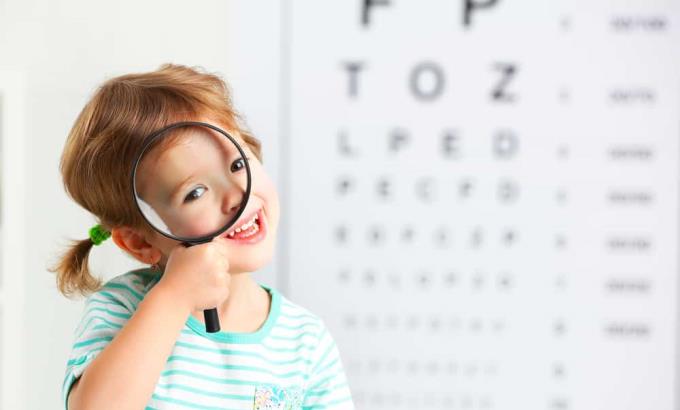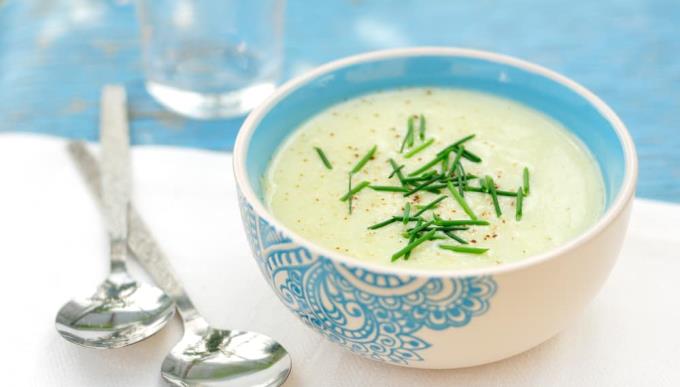Ways to determine an infants caloric needs

Learn how to determine your baby’s caloric needs, including the calories in breast milk and formula, to ensure your infant gets the right nutrition for healthy growth.
Chives is one of the close spice plants, a valuable medicine for health, especially for children. Let's take a look at each of the uses of chives leaves to learn how to use this beneficial leafy vegetable.
If you intend to find a vegetable that is both delicious and rich in nutrients, good for both adults and children, chives is an option that cannot be ignored. This plant has been grown for a long time for the purpose of cooking and as an ingredient in folk remedies.
Modern medicine has proven, the effect of chives comes from a rich source of nutrients including vitamin B group , vitamin K, minerals such as copper, iron, manganese, calcium, riboflavin ... and a variety of derived compounds. Valuable plants will be discussed in the next section.
The truth is that chives are so easy to grow, you can harvest the leaves as often as needed to be eaten as a vegetable or as a medicine when needed. Here are the uses of chives that you should pay attention to:
Chives leaves can be said to be a good source of B vitamins, including folate (the natural form of vitamin B9). This nutrient is known for its role in enhancing children's cognitive abilities . Accordingly, this function ensures that children can easily express their insides, recognize the needs and feelings of others, and at the same time make correct arguments and judgments for themselves ...

In addition to the above benefits, the use of chives also gives children bright eyes! This is because the vegetable itself possesses high levels of vitamin A. This compound acts as an oxidizing agent, helping to protect the eyes against bacterial or viral infections.
Not only that, this substance also helps to form retinal pigments that help regulate and assist eyes to see in low light conditions. Chives also contain two ingredients, lutein and zeaxanthin, which can effectively prevent the risk of macular degeneration .
Although fragile, but the effect of chives leaves is really not to be taken lightly, especially the ability to promote the child's skeletal system. This is all thanks to its high calcium and magnesium content that is essential for bone formation and healthy joints.
In addition, the presence of vitamin K has been compared to a "colloid" that helps calcium attach to the bones more. From there, the new bone is enough "material" to develop length.
The liver is considered a "shield" to protect the body from the ingestion of toxins through the digestive tract, and at the same time is responsible for the elimination of waste products that are byproducts of metabolic processes. Accordingly, one of the prominent uses of chives is to promote liver activity, increase the process of more powerful detoxification.
In theory, during the early stages of development, your baby still faces different levels of oxidative stress (in a sense, the predominance of antioxidants over antioxidants ). Creating a habit for children to regularly consume green leafy vegetables such as chives will provide a source of vitamins A and C that scavenge harmful free radicals (oxidizing agents) and strengthen the baby's resistance. These nutrients also ensure that children do not experience health problems caused by changing weather.

As mentioned earlier, chives contain a lot of plant-based compounds. It is worth mentioning that most of these ingredients have anti-inflammatory effects, thereby contributing to speeding up the healing process of any damage that children are suffering. Young children are quite active and they are very susceptible to unforeseen accidents that leave wounds that make them extremely uncomfortable.
This function is mainly based on the ability of chives to help the body eliminate harmful bacteria in the intestinal tract that interfere with digestion. According to experts, chives can eliminate at least 30 strains of salmonella - one of the causes of weakened intestines. Many other evidence also shows that chives are effective in reducing bloating and soothing stomach irritation.

From the effects of chives above, it can be seen that this vegetable is a great source of nutrition for children. If you decide to give this food to your baby, it is advisable that mothers should only buy fresh chives, small leaves, dark green are not waterlogged, shiny appearance. Avoid choosing ones with large leaves that will be slightly chewy and have a strong taste, so young children, especially toddlers, may not like it.
Like the "cousin" of scallions, mothers can begin to familiarize babies with chives starting at the age of 6 months. However, to ensure that chives are cooked, absolutely not allowed to use them raw.
There are many different ways to add chives to a child's meal. Usually, after washing, to drain, you should chop chives to avoid the risk of choking . Minced chives can be added to porridge or hot soup.
In the event that your baby is having indigestion, it is best not to give chives. Because, an ingredient present in vegetables is oxalic acid, which can cause stomach upset.
Above are the shares about the health benefits of chives for children. Hope the above information has contributed to add to your child care experience add an effective "taste".
Learn how to determine your baby’s caloric needs, including the calories in breast milk and formula, to ensure your infant gets the right nutrition for healthy growth.
Discover the top 5 smartest dog breeds in the world, including Border Collie, Poodle, German Shepherd, Golden Retriever, and Doberman Pinscher. Learn about their unique traits and why they are considered the most intelligent dogs.
Discover 7 nutritious and delicious ways to cook egg porridge for babies, including recipes with cheese, pumpkin, tomato, and more. Learn how to prepare baby-friendly egg porridge with our expert tips.
After a series of medical measures they obtained a complete human vascular system profile.
Watermelon is one of the fruits that many people love, not only cheap but also delicious, nutritious and refreshing in the summer. To get delicious watermelon pieces, show off your housewives, your artistic talents to cut beautiful pieces of watermelon.
aFamilyToday Health - The digestive system and body in each baby is different. Parents need to recognize notes to deal with when babies have a food allergy!
Babies need many factors for perfect development. aFamilyToday Health shares with parents things to keep in mind when babies are 8 weeks old so that parents can take care of their babies the best!
Babies need many factors for perfect development. aFamilyToday Health shares with parents things to keep in mind when babies are 18 weeks so that parents can take care of their babies the best!
Babies need many factors for perfect development. aFamilyToday Health shares with parents things to keep in mind when babies are 28 weeks old so that parents can take care of their babies the best!
Babies need many factors for perfect development. aFamilyToday Health shares with parents things to keep in mind when babies are 32 weeks old so that parents can take care of their babies the best!








